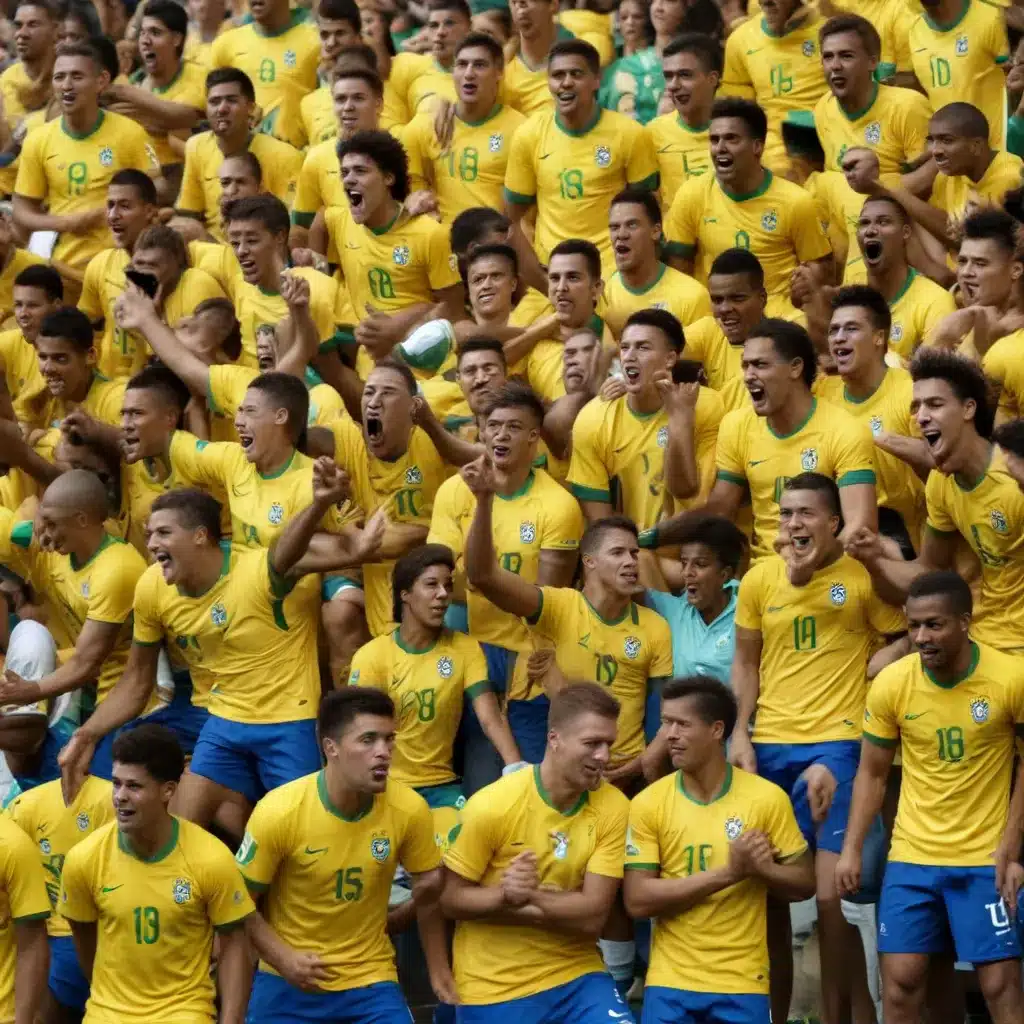
Challenges in Player Welfare
Brazil’s football landscape has long grappled with systemic obstacles to ensuring fair player representation and welfare. Historically, the power dynamics between clubs, player agents, and governing bodies have often favoured the interests of the former, leaving players vulnerable to exploitation and lacking adequate protections.
One of the key challenges has been the lack of robust regulatory frameworks governing player contracts, transfers, and dispute resolution. Brazil’s labour laws provided some basic safeguards, but loopholes and ambiguities allowed clubs to circumvent player rights. This imbalance of power was further exacerbated by the dominance of influential player agents, who could leverage their connections to secure lucrative deals for themselves at the expense of the players’ best interests.
Moreover, the fragmented nature of player unions in Brazil has hindered their ability to effectively advocate for player welfare on a national scale. Individual unions have had limited resources and influence, struggling to match the clout of the wealthy club owners and football authorities.
Brazil’s Strategies for Addressing Player Welfare
In recent years, Brazil has taken steps to address these challenges and strengthen player representation. One key development has been the establishment of more comprehensive regulatory frameworks governing player contracts, transfers, and dispute resolution mechanisms.
The Brazilian Football Confederation (CBF) has implemented player protection regulations that mandate minimum contract lengths, limit unilateral contract termination, and require transparency in transfer fee negotiations. This has helped to curb exploitative practices and provide players with greater job security and bargaining power.
Alongside these regulatory efforts, Brazil’s player unions have also become more proactive in their approach. The National Confederation of Professional Football Players (CNPD) has emerged as a prominent voice, collaborating with clubs, agents, and governing bodies to negotiate improved terms and conditions for players. This has included securing minimum wage standards, better healthcare benefits, and more robust grievance procedures.
The growing influence of player agents has also prompted increased scrutiny and regulation. The CBF now requires player agents to be licensed and adhere to a code of conduct, limiting their ability to engage in predatory practices. This has helped to level the playing field and ensure that players receive a fairer share of the financial rewards in the sport.
Role of Player Agents in Brazil
Player agents have long played a pivotal role in Brazilian football, serving as intermediaries between clubs and players. However, the lack of effective regulation has, at times, allowed unscrupulous agents to exploit their position for personal gain, often at the expense of the players they represent.
To address this issue, the CBF has implemented a comprehensive licensing and regulatory system for player agents. Agents must now undergo a rigorous vetting process, demonstrating their financial standing, professional integrity, and adherence to a code of conduct. This has helped to weed out unethical agents and ensure that players can rely on their representatives to negotiate fair contracts and protect their interests.
Furthermore, the transparency of transfer negotiations has become a key focus area. Clubs are now required to disclose the full details of player transfers, including the breakdown of fees and commissions paid to agents. This has helped to reduce the potential for corruption and ensure that players receive a fair share of the financial rewards.
Ensuring Equitable Player Compensation
Ensuring fair and equitable player compensation has been another critical aspect of Brazil’s efforts to improve player welfare. The establishment of minimum wage standards for professional footballers has been a significant step forward, providing a baseline level of financial security for players, especially those in the lower tiers of the game.
Moreover, the push for greater transparency in transfer fees has been instrumental in empowering players to negotiate better deals. By shining a light on the true market value of player transfers, the CBF has helped to prevent clubs from exploiting their negotiating power and ensure that players are not shortchanged in the process.
Impact of Player Representation on Brazilian Football
The improvements in player representation and welfare have had a tangible impact on the Brazilian football landscape. One notable effect has been the enhanced ability to retain domestic talent, as players now have greater job security and negotiating power, reducing the incentive to pursue lucrative overseas transfers at a young age.
This, in turn, has bolstered the development of Brazil’s domestic football ecosystem, as clubs can invest more confidently in their youth academies and maintain a stronger core of homegrown talent. The increased player retention has also fostered improved club-player relationships, as both parties have a vested interest in the long-term success of the team.
Furthermore, the strengthening of player representation has led to the establishment of more effective dispute resolution mechanisms. Players now have a clear avenue to address grievances and seek redress, reducing the potential for acrimonious conflicts that can disrupt team harmony and on-field performance.
By prioritising player welfare and fostering a more equitable balance of power, Brazil’s football authorities have taken significant strides in creating an environment that empowers and supports its players. This has not only benefited the athletes themselves but has also contributed to the overall growth and sustainability of the Brazilian game.
As the football world continues to evolve, Brazil’s example of proactive player representation and welfare initiatives serves as a model for other nations seeking to create a more just and prosperous future for their footballing talent. By upholding the rights and interests of the players, Brazil has positioned itself to unlock the full potential of its football ecosystem and cement its status as a global powerhouse in the beautiful game.

